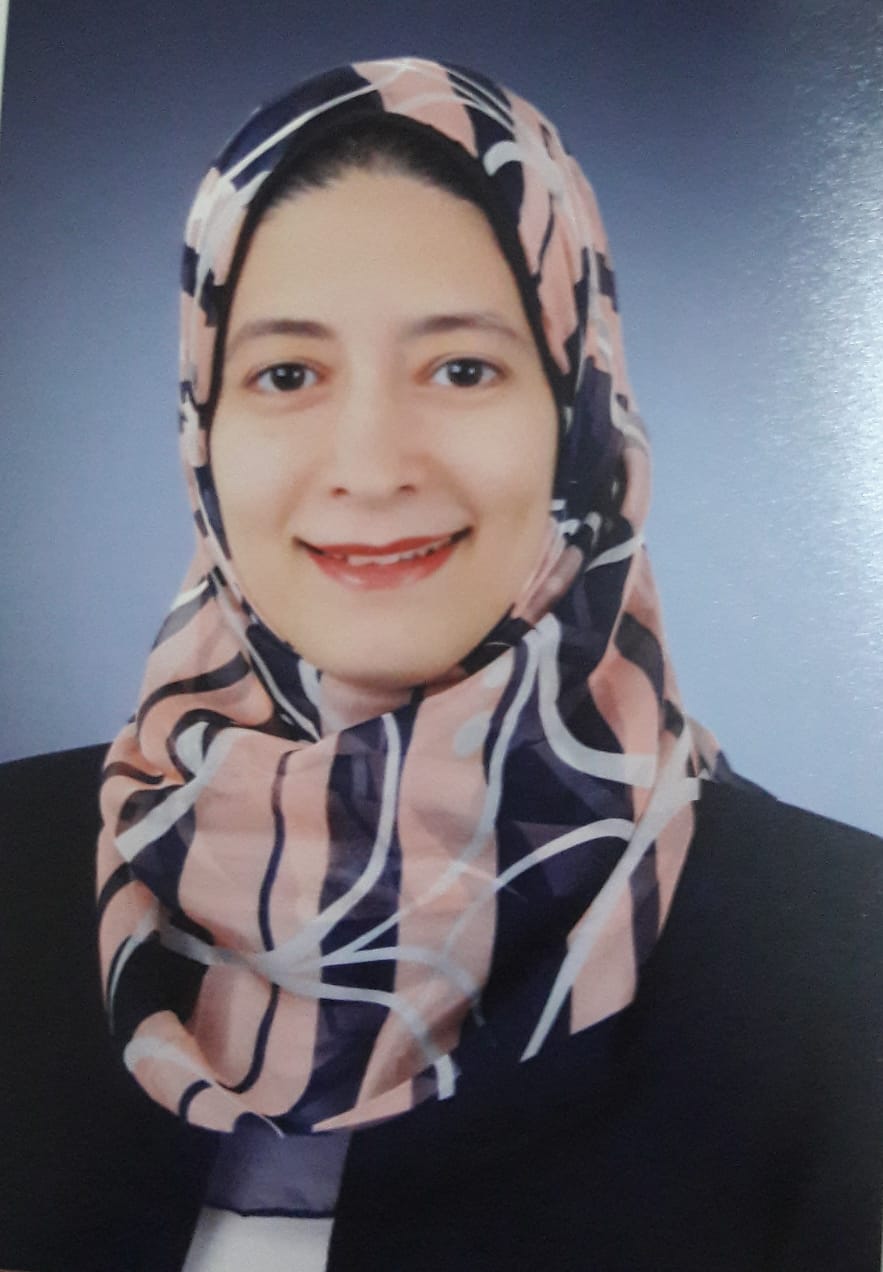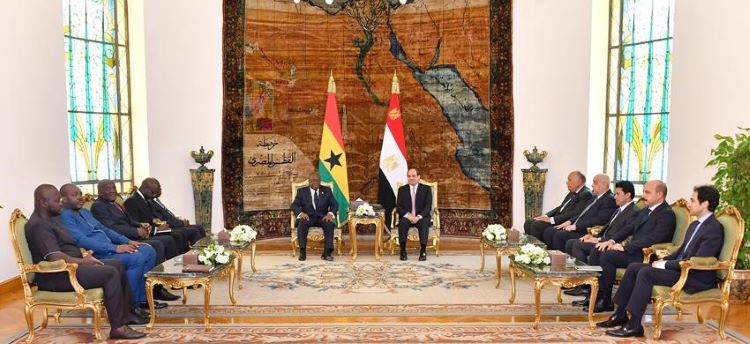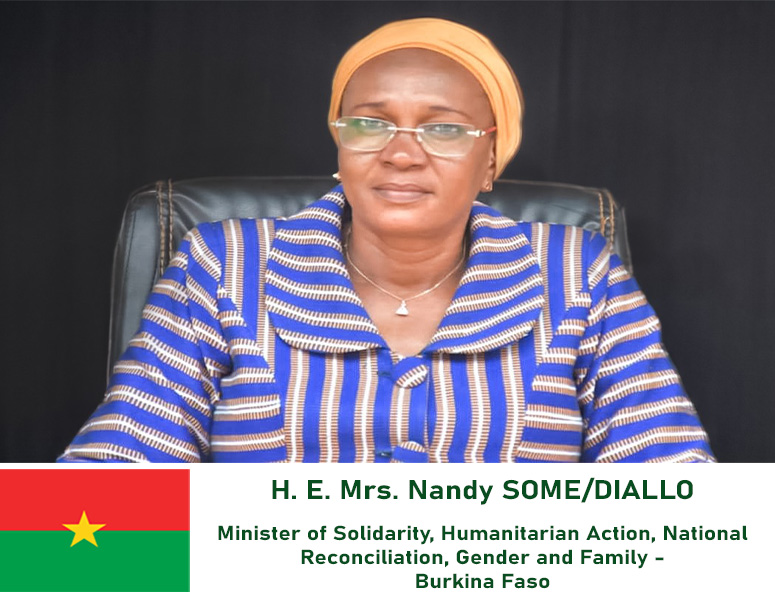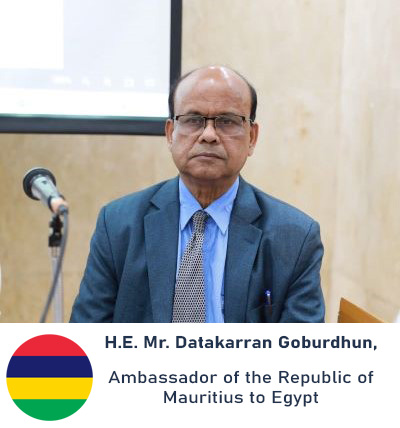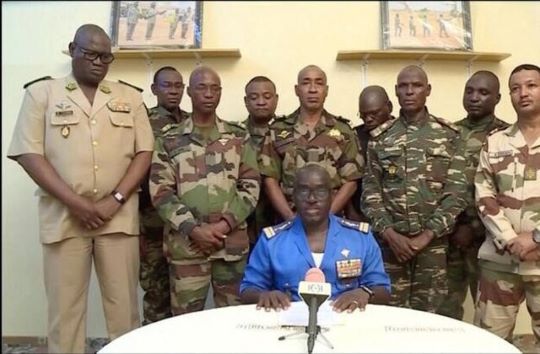
8 Aug. 2023
Many people believe that Algeria's announcement that it does not support an attack on Niger, and the refusal of the Nigerian Senate to give authority and approval to President Paula Tinubu to allow military intervention in Niger is an obstacle for France and a retreat by ECOWAS to restore the regime of President Mohamed Bazoum to power. There will be another scenario that France is currently working on preparing and implementing, whether in Niger or the neighboring countries that witnessed the same fate and shifted their loyalties from the West to the East.
The success of the so-called "Nigerian coup" is tantamount to announcing the collapse of French military influence on the African continent. Accordingly, France will not be able to secure its companies and investments in the continent or implement its new strategy announced by President Macron several months ago to securing its needs from the continent's human and natural resources. Therefore, whoever thinks that things will stop at this point is mistaken, because France will not let things get out of its control easily, but will try in every way to destroy that awakening that started from Mali, then Burkina Faso, and now Niger.
This article will try to focus on the reactions of regional and international parties to deal with the situation in Niger in order to anticipate the expected scenarios and how to confront them.
First - Western powers
We cannot consider that the Western position is unified. On the contrary, their interests in Africa contradict each other. The declared statements do not necessarily represent the true intentions of the international parties. Based on an analysis of the actual actions, we find that:
1- United States of America:
USA has believed for several years that it is necessary to get rid of French influence in Africa, especially in the West African region and the Gulf of Guinea, because its presence and control represent an obstacle to it and its movement, as those regions are rich in natural resources such as oil, uranium and other important minerals. Also, the Sahel and Sahara region is adjacent to countries with an important strategic position in North Africa, and at the same time it belongs to the Arab world, specifically Morocco, Algeria and Libya, and each country represents an axis of pressure on another country, for example, the situation in Libya represents pressure on Egypt and so on.
Therefore, America will not oppose the coup if there are secret agreements between it and the leaders of the new military council to ensure the protection of its interests and the continued presence of its forces in Niger. The evidence that confirms this trend is what the US administration did with the Chadian oppositionist Dr. Succes Masra, the leader of the Leader du Parti Les Transformateurs du Tchad party, when he led the demonstrations against the transitional authority, as it provided him with protection and then he traveled to Cameroon with the help of America and from there abroad.
The United States will not support any military interventions by ECOWAS or others in Niger in order to ensure the integrity and continuity of the democratic model in its allied countries, whether in Nigeria or Senegal. In addition, these countries are among the main countries in the West African region. Also, Nigeria and Senegal have been witnessing some demonstrations and protests for some time as a result of the deteriorating economic conditions in Nigeria due to the food and energy crisis, or the political violence by the Senegalese president and his government towards the opposition in order to obtain a new presidential term. Therefore, America will take a passive neutral position on this coup, but will seek to secure its interests only with the new leaders, and will impose on Nigeria and Senegal non-intervention militarily.
2- Germany: The German economy has been suffering severely since the Russian-Ukrainian war, and there are severe crises that the new administration of the current German chancellor is trying to address, not only energy, but also political problems faced by German companies that have moved their production plants to China. This was discussed at the last meeting of industrialists, economists and businessmen a few months ago at their annual meeting.
The Germans, when searching for alternatives, found that Africa is an important place for transferring these investments to escape from China, among other places that are not the right time to mention them. Also, because of the look of arrogance among the Germans, they believe that what is happening to them in China and the government’s involvement of the political issue in the policy of these companies and its interference in their decisions, will not happen in Africa; the old colonies. and the Africans are eager for the German investments.
Not only that, Africa will be a storehouse of human resources. They developed a plan to import human resources from African countries after training them to compensate for the acute shortage of manpower, because studies have shown that within a period of 7 to 9 years, there will be no German manpower for industry and the economy.
Therefore, the German administration will reject any military interventions currently in West Africa, because it knows very well how fragile the security and political situation is, and that chaos and conflicts will spread to other countries. Consequently, this will hinder its plan to invest in Africa and implement its new strategy towards Africa, which was announced by the German Minister of Economic Cooperation and Development last March.
3- Italy: The current Italian Prime Minister Giorgia Meloni always held France's exploitative economic policy in Africa the responsibility for the illegal immigration. And the Italian Government knows that if the war started in Niger the numbers of immigrants will increase causing more internal problems in Italy.
Therefore, Italy will not support any military intervention in Niger to avoid more suffering from illegal immigration.
Second - China: (China is now forced to concede and involve itself in the political changes that are currently taking place in Africa due to the increased pressure of Western powers led by the United States of America and its allies in Asia, in an attempt to avoid the impact of events on its economic interests).
China has always pretended to be negative neutrality and not to interfere in political conflicts and coups in Africa, as it did during the comprehensive peace negotiations between the Government of Sudan and the People's Liberation Movement of South Sudan in 2005 when it obtained guarantees of the continuation of contracts for its companies operating in the oil sector in the south. When this was achieved, the United States implement the plan of secession of South Sudan, which was achieved in 2011.
But this trend began to change recently, as it found itself forced to intervene to protect its commercial and economic interests in Africa, and to be able to continue implementing the Belt and Road Initiative.
China wants to control the economic conditions that provide it with its resources that enable it to control the Chinese society and prevent the emergence of internal protests, especially from the youth. Therefore, what matters most to the Chinese government is to provide resources for its factories, so that it can withstand its political and economic war in Asia.
Third - Regional Neighboring Countries:
Algeria desperately desires to restore its position and be an influential country in the Sahel and Sahara region. Therefore, it does not want more tensions on its borders, not only for fear of the spread of chaos and extremist groups, but at the same time it desires to find a prominent role for itself. Proof of that, the Minister of Foreign Affairs, Ramtane Al-Amamra, who is known for his experience in international negotiations and issues of peace, was chosen, and after him the current Minister, Mr. Ahmed Attaf; Who previously held the position of Minister of State at the Ministry of Foreign Affairs in charge of African and Maghreb affairs.
Therefore, if the military council in Niger took advantage of this and coordinated with Algeria and involved it in any upcoming negotiations, it would be in its interest. Algeria is also an ally of Russia and one of the most important military collaborators with it, and pro-Russian positions were announced by Algerian President Tebboune. Perhaps one of the main reasons for Foreign Minister Ahmed Ataf's visit to America these days is to discuss the situation in Niger with the US administration.
Burkina Faso and Mali: these tow countries should be sure that what is happening in Niger by the new military council is a real desire for change, as happened in the two countries, and not just a struggle between the ruling elite, specifically between the old leadership under former President Mohamed Issoufou and the new leadership headed by Mohamed Bazoum. Does General Abd al-Rahman Tiani, the leader of the coup really want to reform the country's economic and social policy that achieve country's development?
Chad: if there is a plan to strike the new military council in Niger, it is highly likely that it will be launched from Chad, and it will be a quick operation in cooperation with some agents of the former regime (Mohamed Bazoum); who are in the presidential guard. This expected scenario is supported by the following points:
1- The ruling military council in Chad currently headed by Mohamed Idriss Deby knows that the council is the next step for Russian plan to eliminate French influence in the West African region. Also, Deby Jr. owes allegiance to France because it is the guarantor of his survival in power, succeeding his father, Idris Deby, despite the growing opposition to the way he assumed power in the country.
2- There are approximately 1,000 French forces in Chad with their military equipment, and therefore it is easy to carry out the military operation against the leaders of the Military Council in Niger, but France may resort to trickery and deception by creating some tensions and hostilities against French forces present in Niger, which represents a pretext for military intervention to protect its soldiers and avoid condemnation by the international community.
Conclusion:
Here we refer to the most important points that must be taken into account after the explanation that was made above:
- We cannot overlook France's statement that any attack on its citizens, army or diplomats will be met with an immediate response from Paris.
- It is dangerous to nationalize private international companies operating in Burkina Faso, Mali and Niger in the current period. The power that these corporations have in the global economy now that liberal capitalism leads the world cannot be overlooked. Where these companies can move the armies of countries for their investment interests, also these actions affect the reputation of the new ruling authorities in the international investment sector.
-
The expected crisis is that the vast majority of the Nigerien people believe in the importance of changing policies, especially the youth, that represents a real burden on any authority, and the leaders will have only two ways to deal with these ambitions:
The first: The attempt to achieve real change, and this will not be achieved without the continuous work for development, cooperation and continuous coordination among Burkina Faso, Mali and Niger, because there are many common factors between the three countries, whether in the vision, common borders, abundant resources and the desire for change.
The second: resorting to violence and suppressing the demands of the people, especially the youth, because what is happening now by the three new authorities, like raising enthusiastic slogans of development and economic independence, may represent a bomb that may explode anytime if real development is not provided in the coming periods.
To conclude, it is not easy at all to launch a military strike at the present time against Niger, whether by France unilaterally or through the ECOWAS , but there remain two dangers: the first is the danger of an attack through Chad. The second danger is the high expectations of the youth inside Niger, which may represent a threat for the internal stability. So, if urgent reform policies are not adopted, the strike may be happen from Nigerian internal environment not from outside.
Through my follow-up of what is being written and talked about in the various traditional and new media (social media), and also through my direct conversations and dialogue with young people and listening to their opinions, it is clear that they monitor and anticipate many achievements of the policies of the new authorities in the three countries during next period. The most important of which is to benefit from the wealth and resources of their country, and they will not let things go as they were in the past. Therefore, any attempt to return to the policies of the past will be met with violence and objection by the people in any of the three countries, because the enthusiastic slogans raised the ceiling of expectations and ambition among the youth. here lies the danger because the events in one country will affect the other.
 ar
ar
 fr
fr

